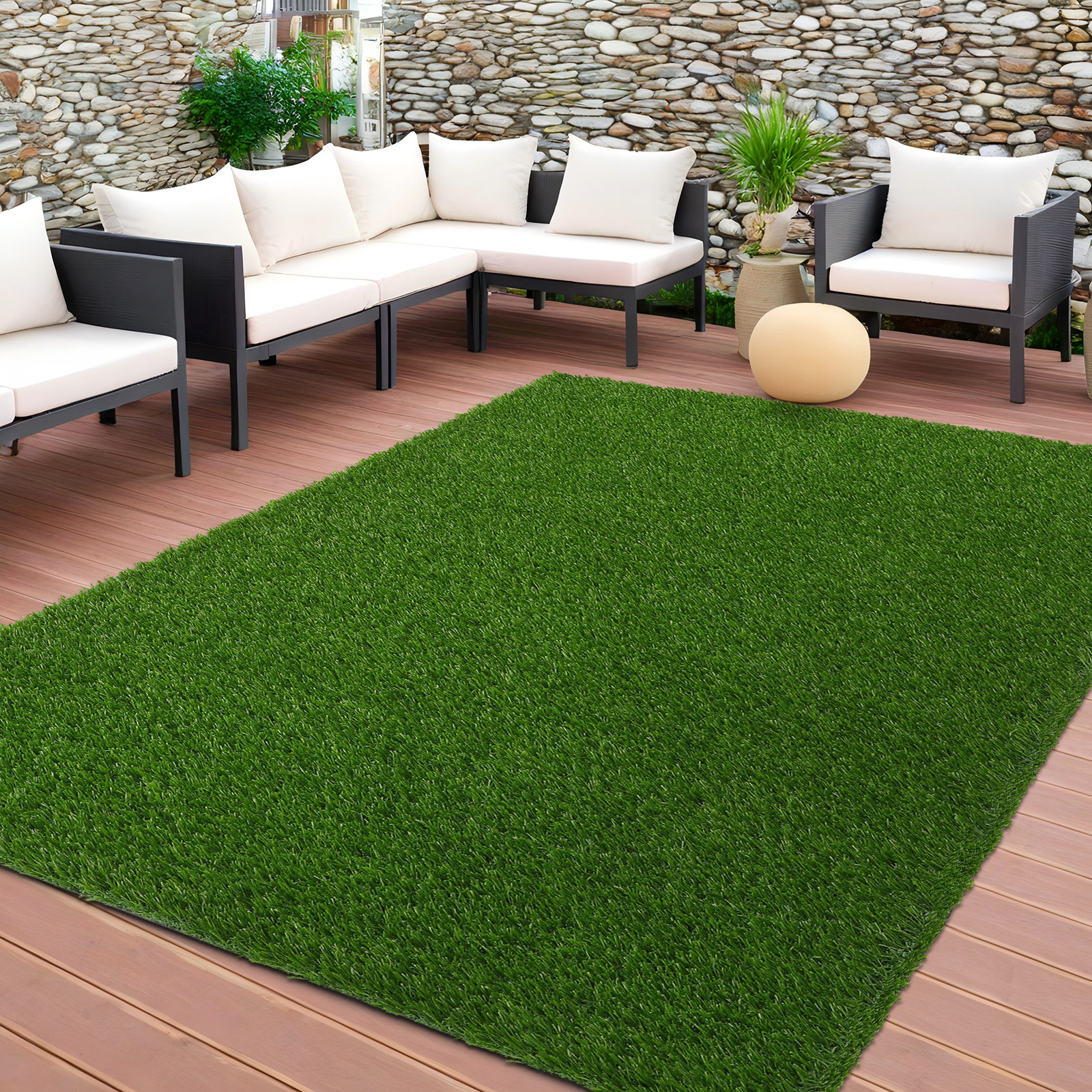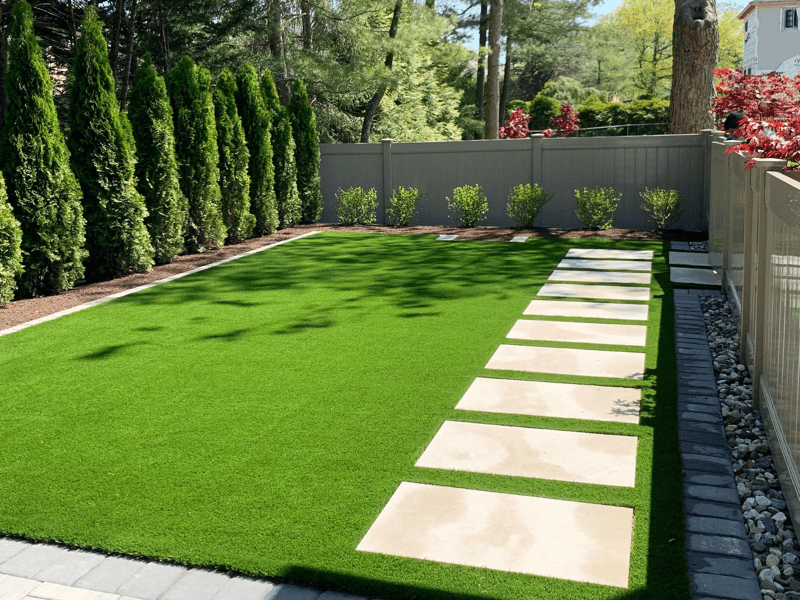Professional Arizona Turf Installation Solutions for Residential and Business Use
Professional Arizona Turf Installation Solutions for Residential and Business Use
Blog Article
Explore the Environmental Benefits of Opting for Artificial Grass Solutions
The adoption of synthetic lawn remedies presents a compelling possibility to deal with pushing ecological challenges. By substantially decreasing water usage and decreasing the application of damaging chemicals, these choices not just advertise lasting landscape design yet additionally protect neighborhood ecosystems. The reduced carbon impact linked with reduced maintenance tasks adds to a much more sustainable strategy to land monitoring. However, the effects of these benefits expand past mere conservation initiatives, questioning about their long-lasting influence on habitat preservation and general eco-friendly equilibrium. Checking out these dimensions reveals a complex interaction worth thinking about.
Water Preservation Conveniences
Among one of the most significant advantages of artificial grass is its capacity to preserve water. Standard grass yards call for considerable irrigation, especially in locations susceptible to drought or water restrictions. On the other hand, synthetic grass does not need watering, significantly minimizing the total demand for water sources. This feature is particularly beneficial in dry areas where water shortage is a pushing problem.
By eliminating the need for routine watering, synthetic grass adds to sustainable landscape methods and helps minimize the ecological influence of too much water intake. The preservation of water expands to the reduction of runoff, which can lead to soil disintegration and waterway air pollution.
In addition, the installment of synthetic grass allows districts and house owners to assign water resources much more effectively, focusing on necessary usages such as alcohol consumption water and farming. The change towards synthetic grass not just advertises liable water use yet also lines up with wider environmental objectives intended at maintaining natural deposits.
As communities significantly prioritize sustainability, the water conservation advantages of fabricated lawn provide a compelling instance for its fostering in property and industrial landscaping projects.
Lowered Chemical Use
The change to fabricated lawn considerably reduces the dependence on chemical therapies frequently made use of in natural yard upkeep. Typical lawn management generally entails the application of fertilizers, herbicides, and pesticides to promote growth and control parasites. These chemicals can pose risks to human wellness, neighborhood wild animals, and the atmosphere, adding to soil and water contamination.
In comparison, artificial grass removes the need for these harmful compounds. By minimizing the release of artificial compounds right into the ecosystem, man-made lawn promotes much healthier dirt and water systems.
Additionally, the lack of chemical runoff linked with synthetic grass installments helps protect neighborhood waterways from contamination, sustaining aquatic life and preserving biodiversity. Phoenix turf companies. As neighborhoods significantly focus on lasting techniques, going with man-made lawn presents a feasible remedy that aligns with environmental conservation goals. Via this change, building owners can enjoy lavish green rooms without endangering ecological health, paving the method for a much more lasting future
Reduced Carbon Impact

Additionally, the setup of man-made lawn can result in substantial water conservation. Natural yards need substantial quantities of water for watering, which not just includes in the carbon impact connected with water extraction and treatment but likewise stress regional water resources. On the other hand, synthetic grass needs marginal upkeep, calling for no watering, thus significantly lowering water use and its associated power prices.
Furthermore, the long life of man-made turf adds to its lower carbon impact. With a lifespan of approximately 15 years or even more, the requirement for regular replacements is decreased, resulting in much less waste and reduced energy consumption in manufacturing and throwing away standard turf alternatives. Overall, synthetic turf offers a lasting choice for environmentally aware landscape design.
Habitat Conservation
Environment preservation is a crucial factor to consider in the discussion over landscaping choices, specifically when comparing artificial lawn to natural grass. All-natural lawn lawns frequently call for substantial maintenance, consisting of making use of plant foods, pesticides, and herbicides, which can detrimentally affect neighborhood environments. These chemicals can seep into the soil and rivers, harming native vegetation and animals and disrupting regional habitats.
In contrast, synthetic grass presents a chance to reduce the environmental impact of landscaping. By choosing artificial turf, home owners can reduce the disturbance of natural habitats connected with traditional yard treatment practices. Synthetic grass eliminates the requirement for hazardous chemicals, consequently shielding close-by wild animals and keeping visit homepage the honesty of surrounding environments. In addition, the installation of synthetic grass can bring about the conversion of former turf areas into more biodiverse landscapes, such as pollinator yards or indigenous plant locations, which can sustain local wildlife.
Ultimately, the transition to synthetic grass not only preserves water and lowers upkeep initiatives however also fosters an extra unified connection between human tasks and the natural surroundings, promoting habitat conservation while doing so.
Long-Term Sustainability
Long-lasting sustainability is an important consider assessing the advantages of synthetic grass over traditional grass yards. One of one of the most considerable benefits of synthetic grass is its toughness; it can last as much as 15-20 years with minimal upkeep, whereas natural yard needs frequent reseeding and substitute. This longevity lowers the requirement for constant sources, such as water, fertilizers, and chemicals, which are important for keeping a healthy yard lawn.
Additionally, synthetic grass adds to a reduction in carbon discharges connected with yard care devices. Typical yards often need gas-powered lawn mowers, trimmers, and blowers, every one of which add to air pollution. Arizona artificial turf. On the other hand, man-made lawn eliminates the requirement for such tools, promoting a cleaner environment
Furthermore, the manufacturing of artificial turf significantly uses recycled materials, improving its sustainability account. As makers take on environment-friendly techniques, the environmental footprint of man-made lawn continues to lessen.

Final Thought
The fostering of synthetic browse around this site grass remedies presents substantial environmental benefits, including significant water conservation, lowered reliance on harmful chemicals, and a lower carbon impact. Moreover, synthetic grass help in protecting all-natural habitats by lessening land disturbance and promoting lasting sustainability through the usage of durable materials. Jointly, these aspects underscore the potential of synthetic grass to contribute favorably to ecological health and use a sensible alternative to typical landscaping methods in a significantly resource-conscious world.
In contrast, synthetic grass does not require watering, significantly decreasing the overall demand for water resources. By lessening the launch of artificial substances right into the ecological community, artificial turf promotes healthier soil and water systems.
Moreover, the setup of man-made grass can result in substantial water conservation. In contrast, synthetic grass needs minimal maintenance, requiring no watering, thus considerably decreasing water usage and its connected energy costs.

Report this page